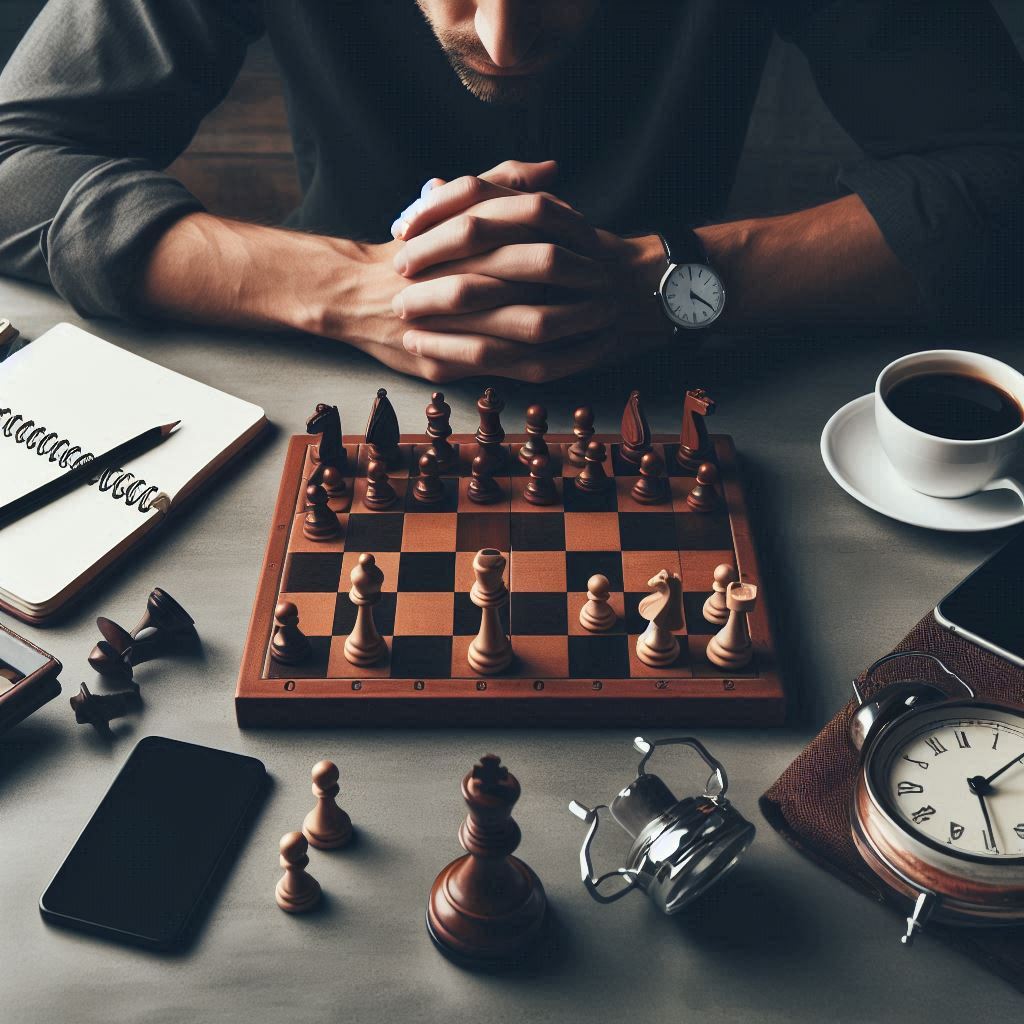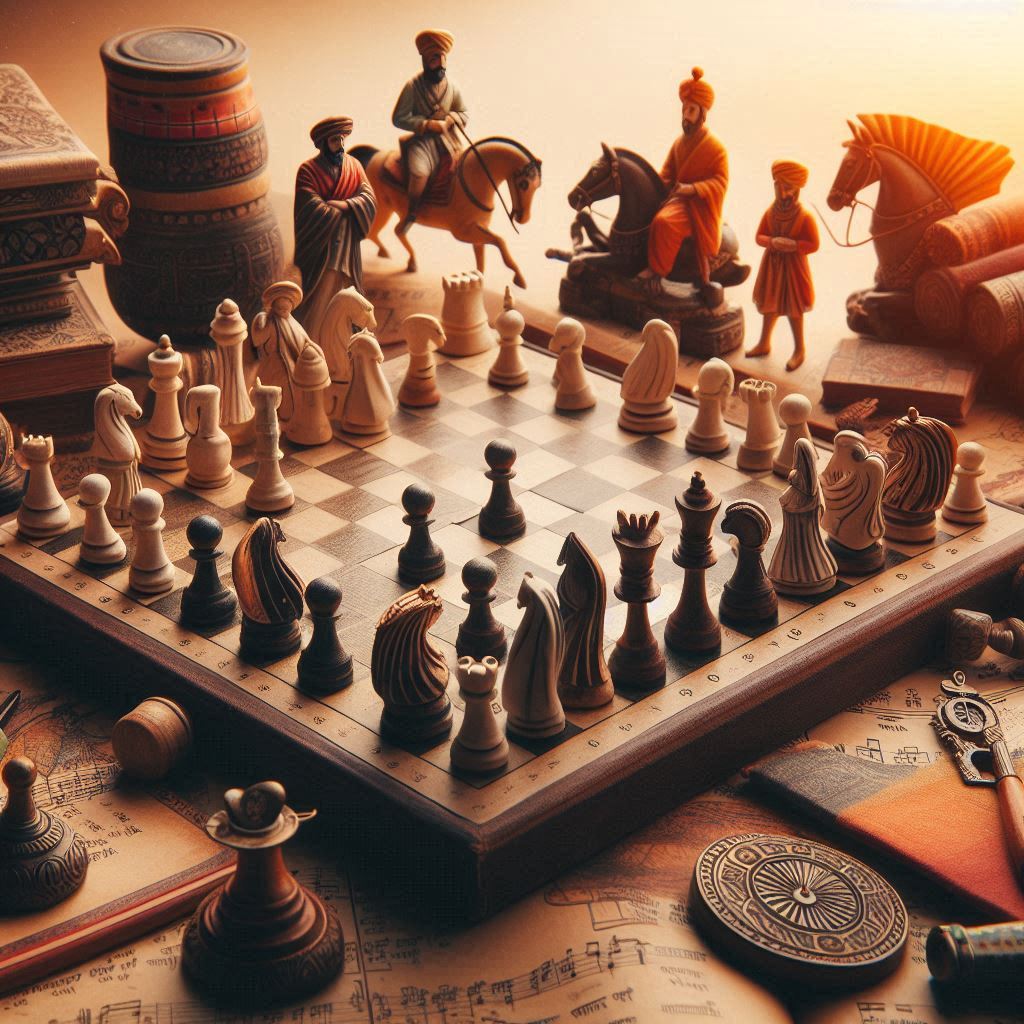Introduction
Chess is a game that combines strategy, tactics, and deep thinking. To improve in chess, a structured and comprehensive study plan is essential. Whether you’re a beginner or an advanced player, having a clear plan can significantly enhance your skills and help you reach your goals. This article will guide you through developing an effective chess study plan tailored to your level and objectives.
Understanding the Importance of a Study Plan
Why You Need a Study Plan
A study plan helps you stay organized, track your progress, and ensure that you cover all essential aspects of chess. It prevents random, unstructured practice sessions and maximizes the efficiency of your learning process.
Benefits of a Structured Approach
A structured approach to studying chess ensures consistent improvement. It allows you to focus on your weaknesses, build on your strengths, and steadily progress towards your goals. Additionally, it helps maintain motivation by providing a clear path to follow.
Assessing Your Current Level
Self-Evaluation
Start by evaluating your current chess skills. Identify your strengths and weaknesses by analyzing your recent games and taking note of recurring mistakes. This self-assessment will guide the focus areas of your study plan.
Using Rating Systems
Use chess rating systems like Elo or FIDE ratings to gauge your current level. Online platforms like Chess.com and Lichess provide rating systems that can help you track your progress over time.
Setting Goals
Short-Term Goals
Short-term goals are specific and achievable within a few weeks or months. Examples include mastering a particular opening, improving endgame skills, or increasing your rating by a certain number of points.
Long-Term Goals
Long-term goals are broader and take longer to achieve. These might include reaching a specific rating milestone, competing in tournaments, or becoming a titled player.
Components of a Chess Study Plan
Openings
Mastering a few key openings is crucial for establishing a strong foundation in your games. Focus on understanding the principles behind the openings and their typical middle-game plans.
Middlegame
The middlegame involves strategic planning and tactical execution. Study common tactical motifs, strategic themes, and positional play to improve your middlegame skills.
Endgame
Endgame knowledge is essential for converting advantages into wins. Focus on fundamental endgame techniques, such as king and pawn endgames, rook endgames, and basic checkmates.
Tactics
Tactics are the backbone of chess calculation. Regularly solving tactical puzzles will sharpen your calculation skills and improve your ability to spot winning combinations.
Strategy
Understanding chess strategy involves recognizing patterns and planning long-term. Study classic games, strategic themes, and positional sacrifices to enhance your strategic thinking.
Game Analysis
Analyzing your own games and those of stronger players helps identify mistakes and understand different approaches to various positions. Use chess engines to assist in your analysis.
Creating a Study Schedule
Daily Practice
Incorporate daily practice into your routine. Even short, focused sessions can be highly effective. Aim for at least 30 minutes of study each day, focusing on different aspects of the game.
Weekly and Monthly Goals
Set weekly and monthly goals to ensure consistent progress. For example, you might aim to solve a certain number of puzzles each week or study a specific opening for a month.
Balancing Study Areas
Balance your study time among different areas of chess. Allocate specific days or times for openings, middlegame, endgame, tactics, and strategy to ensure well-rounded improvement.
Utilizing Resources
Books
Chess books are a valuable resource for in-depth study. Some recommended titles include “My System” by Aron Nimzowitsch, “Silman’s Complete Endgame Course” by Jeremy Silman, and “How to Reassess Your Chess” by Jeremy Silman.
Online Platforms
Online platforms like Chess.com, Lichess, and ICC offer a wealth of resources, including puzzles, lessons, and game analysis tools. These platforms also allow you to play against opponents of various skill levels.
Videos and Courses
Many grandmasters and coaches offer video lessons and courses online. Websites like Chess24 and YouTube provide access to instructional videos covering all aspects of the game.
Coaching
Consider hiring a chess coach for personalized guidance and feedback. A coach can help identify your weaknesses, suggest improvements, and provide structured training plans.
Tracking Progress
Keeping a Chess Journal
Maintain a chess journal to track your progress, document your games, and record insights from your studies. Regularly review your journal to identify patterns and areas for improvement.
Regular Assessments
Periodically assess your progress by playing rated games and analyzing the results. Adjust your study plan based on these assessments to address new weaknesses and reinforce strengths.
Staying Motivated
Finding a Study Group
Joining a chess study group can provide motivation, support, and a sense of community. Study groups allow you to share insights, discuss games, and participate in group learning activities.
Participating in Tournaments
Playing in tournaments offers valuable experience and helps gauge your progress. Competing against stronger opponents provides challenges that can significantly boost your skills.
Celebrating Milestones
Celebrate your achievements and milestones, no matter how small. Recognizing your progress keeps you motivated and reinforces your commitment to improvement.
FAQs
How often should I study chess to see improvement? Consistent daily practice is key to improvement. Aim for at least 30 minutes of focused study each day, adjusting the intensity and duration based on your goals and schedule.
What are the best resources for beginners to start their chess study? Beginners should start with resources that cover the fundamentals, such as “Chess Fundamentals” by José Capablanca and online courses like those offered by Chess.com and Lichess.
How can I balance chess study with playing games? Balance your study and playing time by setting a schedule that allocates specific days or times for each. For example, you might dedicate weekdays to study and weekends to playing games.
Is it necessary to hire a chess coach? While not necessary, hiring a chess coach can provide personalized guidance and accelerate your improvement. Coaches can help identify your weaknesses, suggest targeted improvements, and offer structured training plans.
How do I stay motivated when progress seems slow? Set achievable short-term goals, celebrate small milestones, and join a study group or participate in tournaments for motivation and support. Regularly review your progress to remind yourself of your improvements.
What should I focus on if I’m struggling with a specific aspect of chess? If you’re struggling with a specific aspect, allocate more study time to that area and use targeted resources such as books, videos, and puzzles. Consider seeking advice from a coach or more experienced players.
Conclusion
Developing a chess study plan is essential for systematic improvement. By assessing your current level, setting clear goals, and creating a balanced study schedule, you can enhance your skills and achieve your chess objectives. Utilize the wealth of available resources, track your progress, and stay motivated to become a stronger chess player. Remember, consistency and dedication are key to long-term success in chess.



